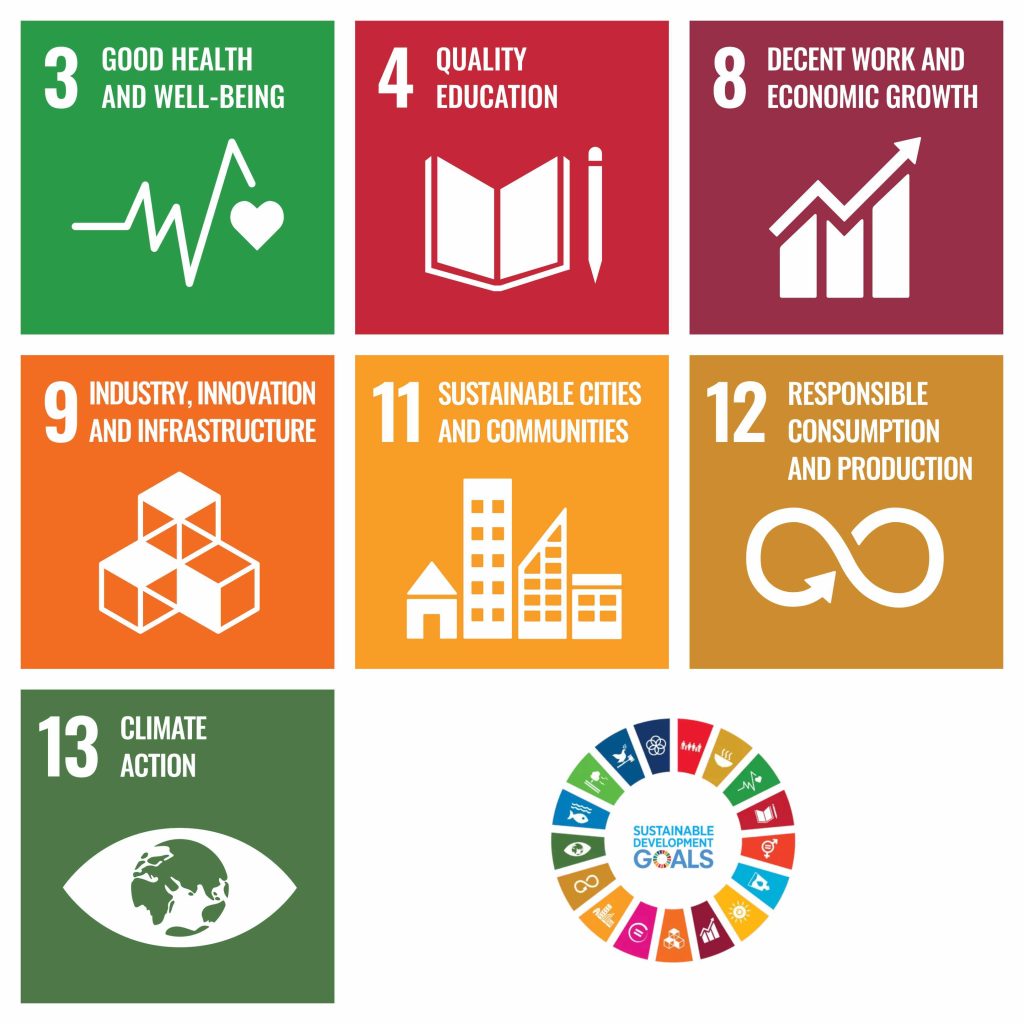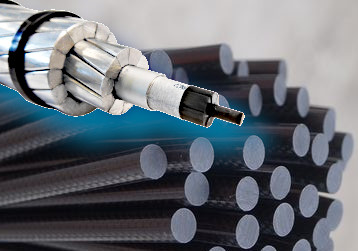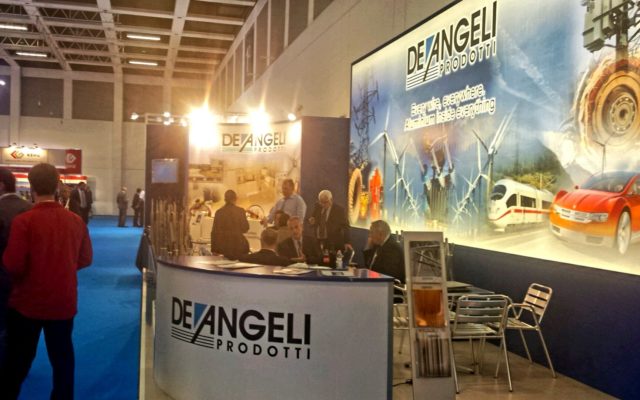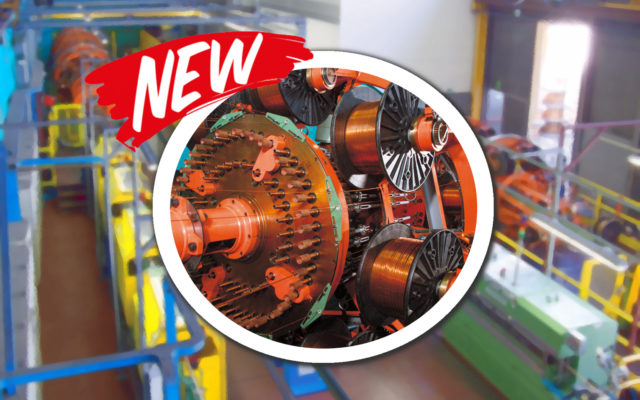Corporate sustainability is fundamental both at an environmental and social level. De Angeli Prodotti undertakes every day with concrete actions.
Corporate sustainability can be understood as the ability of a company to effectively address the Triple Bottom Line (3BL) of the Anglo-Saxon world and its 3P: People, Planet, and Profit. In 1998, John Elkington theorized this approach to create a standardized evaluation system that would allow for the measurement of a company’s sustainability strategies.
Summary
- 1 Corporate Sustainability: the 3Ps
- 2 Life Cycle Assessment (LCA)
- 3 The role of companies in the well-being and safeguarding of people and the planet
- 4 Best practices for the European Green Deal
- 5 The 2030 UN Agenda
- Conclusion
1. Corporate Sustainability: the 3Ps
The 3Ps model is still a useful tool today for assessing the positive or negative impact of an organization on its stakeholders and the environment, in addition to its ability to create economic value. Corporate sustainability allows for the development of positive relationships, improves the image of the corporate brand, and ensures the long-term sustainability and survival of the company. This sustainability also extends to the design, construction, and maintenance of buildings and must balance the environmental, social, and economic benefits that the company produces for its community and the people who live in it.
For this reason, the three words People, Planet, and Profit are briefly defined.
1.1 People
The first “P” is People and represents people, namely employees, customers, the local community, and other stakeholders. Attention to people is important to create a healthy and safe work environment, respect workers’ rights, and contribute to the community’s well-being.
1.2 Planet
The second “P” is Planet and represents the planet, namely the environment and natural resources. Attention to the environment is important to prevent pollution, reduce environmental impact, and use resources sustainably.
1.3 Profit
The third “P” is Profit, which represents profitability, that is, the economic sustainability of the company or organization. Paying attention to profit is important to ensure the sustainability of the company over time and continue to provide quality products and services.
2. Life Cycle Assessment (LCA)
The 3P model is often paired with Life Cycle Assessment (LCA), the method that evaluates the environmental impact of a product, service, or process throughout its lifecycle, from raw materials and extraction, to production, distribution, use, and final disposal. The analysis takes into account various environmental impacts, such as greenhouse gas emissions, natural resource use, air and water pollution, and provides a complete picture of the environmental impact of a product or service.
The aim of LCA is to provide information to producers, consumers, and policy-makers to make informed decisions about the environmental impact of products and services and identify possible areas for improvement to reduce overall environmental impact.
3. The role of companies in the well-being and safeguarding of people and the planet
De Angeli Prodotti, in full respect of good corporate sustainability practices, is committed to three different areas: social responsibility, environmental sustainability, and economic sustainability.
3.1 Social responsibility
Social responsibility is prioritizing the well-being of the people who revolve around the company (employees, collaborators…), around it (suppliers, customers…) and far from the company itself (local and global communities). Taking care of this interest allows for more motivated employees, more reliable suppliers, and more loyal customers, as well as increasing the reputation of the brand thanks to the respect of the local community (such as the enhancement of local skilled labor) and the global community (such as creating offshored jobs that are protected and fairly compensated).
3.2 Environmental sustainability
Environmental responsibility is prioritizing the well-being of the environment that revolves around it (the area where it is actually located), around it (the territorial fabric in which it is inserted), and far from the company itself (the local and global landscape). Taking care of this interest by limiting environmental impact, protecting natural resources, and safeguarding the planet for future generations allows increasing the reputation of the brand, making employees, suppliers, and customers proud and tapping into a range of dedicated economic funds.

3.3 Economic sustainability
Companies that care about economic sustainability can maintain their competitiveness and prosperity in the long term. This allows us to manage even crisis moments with the aim of ensuring stable employment for employees and the possibility of making the company prosper over the years.
4. Good practices for the European Green Deal
The European Green Deal is an ambitious plan of the European Union to make Europe the world’s first climate-neutral continent by 2050.
With its adoption, the EU and its Member States have committed to reduce net greenhouse gas emissions in the EU by at least 55% by 2030 compared to 1990 levels. This is a legally binding objective based on an impact assessment carried out by the Commission.
This goal is pursued through a series of initiatives, policies, and social measures aimed at making the European economy more sustainable and resilient, reducing greenhouse gas emissions, promoting energy efficiency, sustainable mobility, protecting biodiversity, and transitioning to a circular economy.
Virtuous companies must take on a leadership role in the transition to a more sustainable economy and in achieving the goals of the European Green Deal, adopting practices and strategies aimed at minimizing environmental impact, creating long-term value for all stakeholders, and contributing to the well-being of society as a whole, in light of the sustainability models adopted.
5. The 2030 UN Agenda
2030 marks not only the first step towards the Green Deal plan, but also the conclusion of the UN agenda for sustainable development project.
The 2030 Agenda for Sustainable Development is the action plan for people, planet, and prosperity signed in September 2015 by the governments of the 193 UN member states, characterized by a list of 17 goals and 169 targets that the member states have committed to pursue for Sustainable Development Goals (SDGs).
5.1 The objectives of De Angeli Prodotti
De Angeli Prodotti is actively working to have a virtuous role in 7 of these goals:
- Ensuring healthy lives and promoting well-being for all;
- Ensuring access to quality education and promoting lifelong learning for all;
- Promoting sustainable and inclusive economic growth to provide decent work for all;
- Building resilient infrastructure, promoting sustainable industrialization, and fostering innovation;
- Making cities and communities safe, inclusive, resilient, and sustainable;
- Ensuring sustainable and responsible production and consumption patterns;
- Taking urgent action to combat climate change and its negative effects.

5.2 The concrete actions of De Angeli Prodotti
De Angeli Prodotti has to complain the CSRD (Corporate Sustainability Reporting Directive), i.e., sustainability corporate reporting.
The CSRD introduces a new concept of “double relevance” (or “double materiality”), according to which companies must provide information both about the impact of the company’s activities on people and the environment (inside-out approach), and about how sustainability issues affect the company, its results, and its situation (outside-in approach).
In particular, the Euroconference News report of February 6, 2023, defined that a virtuous company must create a strategic business model that includes:
- risk and opportunity management related to sustainability issues;
- company plans, including implementation actions and related financial and investment plans aimed at ensuring the compatibility of the model and strategy with the transition to a sustainable economy;
- how the model and strategy take into account the interests of relevant stakeholders;
- how to implement the strategy within sustainability;
- description of the ESG objectives identified by the company and progress in their achievement;
- description of the role of management, governance, and control bodies in relation to ESG issues and information on the existence of incentive systems related to sustainability issues;
- description of the company’s sustainability policies;
- description of sustainability due diligence procedures;
- description of the main negative impacts related to the company’s activities and its value chain and the actions taken to identify and monitor such impacts, as well as to prevent and mitigate their effects;
- description of the main risks related to sustainability issues and the management methods adopted;
- indicators and KPIs for all the above information.
Conclusion
De Angeli Prodotti aims to become one of the main players in the green revolution to contribute to the safeguarding of planet Earth. To achieve this, they have implemented a sustainability strategy that covers the entire production process, combining environmental and social concerns with the production of high-quality products that fully satisfy their customers. This is achieved through the use of human and economic resources dedicated to developing a sustainability policy in the three areas described above to improve their rating.
In line with their social responsibility, De Angeli Prodotti is SA 8000 certified and is committed to protecting human and workers’ rights. All employees enjoy equal opportunities and freedom to follow their principles, without discrimination and without adopting offensive or coercive behavior. By joint participation of workers and management in protecting human rights, non-conformities can be identified and corrected, and the maintenance of what works perfectly can be ensured.
To respond to environmental sustainability, De Angeli Prodotti is ISO 14001 and ISO 50001 certified for their commitment to reducing CO2 emissions and improving energy efficiency. The company monitors their Key Performance Indicators (KPIs) monthly, including waste recycling, solvent consumption reduction, and reducing workplace accidents.
Today, De Angeli Prodotti wants to play an even more leading role in the green revolution by investing in renewable energies and decarbonization to contribute to the safeguarding of the planet. Quality and innovation, both in the field of energy transport conductors and insulated conductors for electromechanical applications, will contribute to the creation of tomorrow’s mobility, and will be the keys to continuous improvement of the organization and production processes, environmental performance, health and safety, human and labor rights protection, and energy efficiency.


